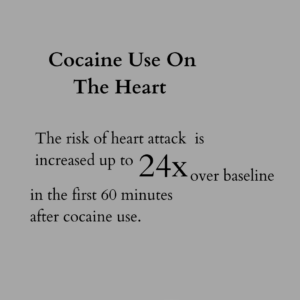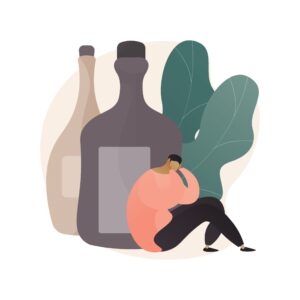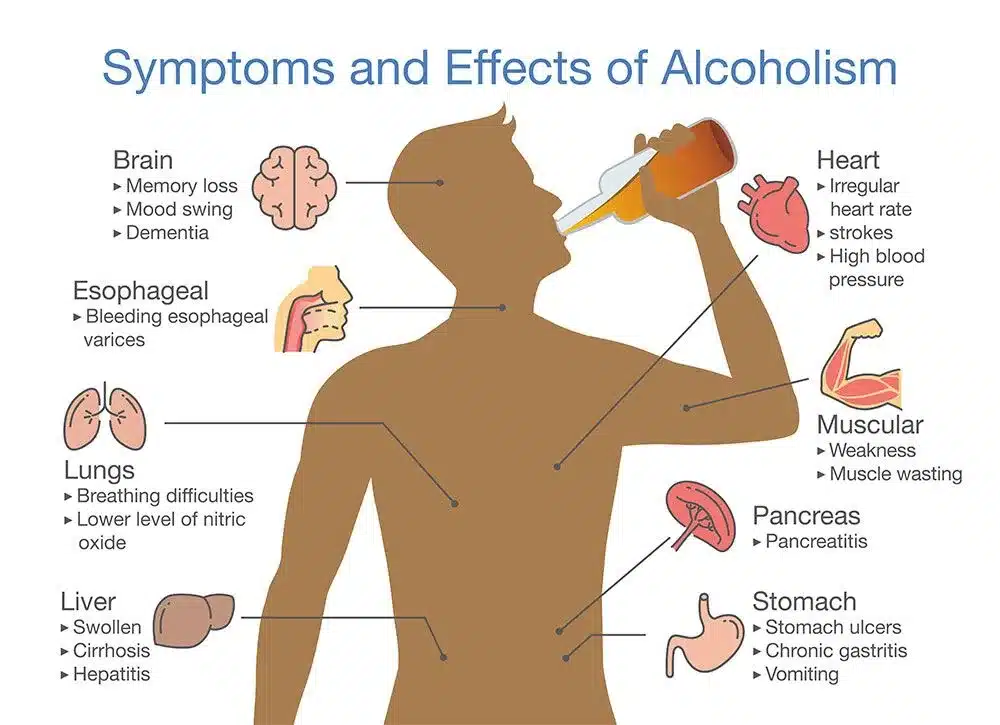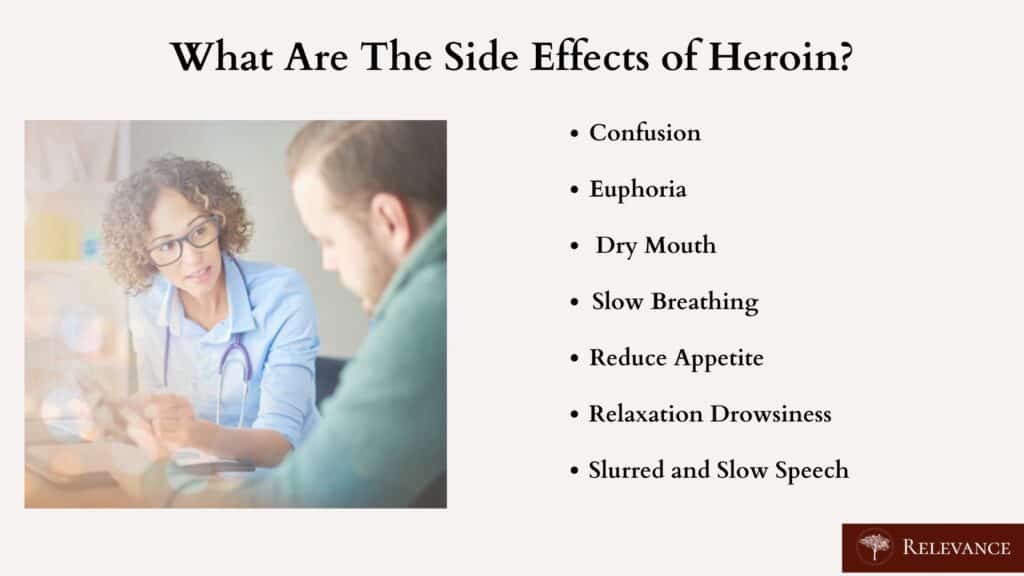Cocaine is a highly addictive stimulant drug that interacts with the central nervous system (brain and spinal cord) to produce intense feelings of euphoria and energy. Cocaine is a manufactured drug created using the leaves of the coca plant native to South America. Cocaine is processed into a fine white powder that is commonly consumed by snorting it into the nose; however, it can be rubbed onto the gums, smoked, or mixed with liquid and injected into the veins.
In 2018, the National Survey on Drug Use and Health data indicated cocaine was the second most common drug associated with fatalities in the United States that year. The effects of cocaine are immediate and intense, yet they are not long-lasting. The short-lived nature of the impact of the drug leads many people to come back for more frequent and often more substantial doses. For many who struggle with a cocaine addiction, achieving sobriety and recovery are challenging without detox and comprehensive addiction treatment.

Signs of Cocaine Addiction
Cocaine use leads to physical and psychological effects on the user. To better understand if you or a loved one should seek treatment for cocaine use, it is necessary to understand the signs and symptoms of cocaine addiction. Chronic, long-term cocaine use can lead to significant physical and psychological health risks. Some of the most common signs you may notice immediately after using cocaine include excessive energy, runny nose, improved concentration, dilated pupils, appetite changes, and paranoia. These symptoms generally wear off after a very short time, typically no more than 30 minutes.
As you begin to develop a tolerance to cocaine and an addiction to the effects of the drug, larger and more frequent doses are often required to attain the same high you achieved when you first began using. As cocaine use becomes more regular and the dosing size increases, cocaine can start to have irreversible and overwhelmingly detrimental effects on the body. Examples of common physical effects include headaches, increased blood pressure, nausea and vomiting, chills, seizures, heart attack, stroke, and death. Psychological effects of chronic cocaine use may include significant mood changes and difficulties with memory and focus.
The extent and severity of the long-term effects of cocaine use depend on the severity of one’s addiction. The more often and the more frequently you use cocaine, the more likely you are to develop potentially life-threatening symptoms and side effects from its use. Chronic use of cocaine will eventually lead to detrimental and often irreversible effects on vital, life-sustaining body systems, including the brain, respiratory system, cardiovascular system, and gastrointestinal system.
Different treatment approaches and therapies
Cocaine treatment centers employ a range of treatment approaches and therapies to address addiction and promote recovery. Some common approaches include:
1. Cognitive-Behavioral Therapy (CBT): CBT helps individuals identify and modify negative thought patterns and behaviors associated with cocaine addiction. It aims to develop healthier coping mechanisms and strategies to prevent relapse.
2. Motivational Interviewing: Motivational interviewing is a counseling technique that aims to enhance an individual’s motivation to change addictive behaviors. It involves exploring and resolving any ambivalence about quitting cocaine and reinforcing personal motivations for recovery.
3. Contingency Management: Contingency management is a reward-based approach that provides incentives for drug-free urine samples or achieving specific treatment goals. It reinforces positive behaviors and motivates continued abstinence.
4. Family Therapy: Family therapy involves the participation of family members in the treatment process. It helps improve communication, addresses family dynamics, and provides support for both the individual in recovery and their loved ones.
Types of Cocaine Treatment Centers
When it comes to choosing a cocaine treatment center, there are various options available. The most common types include:
1. Inpatient Treatment Centers: Inpatient treatment centers provide a structured and supportive environment for individuals to focus solely on their recovery. These centers typically offer around-the-clock medical supervision, counseling, and various therapies.
2. Outpatient Treatment Centers: Outpatient treatment centers allow individuals to receive treatment while still living at home. This option is suitable for those with less severe addiction or those who cannot commit to residential treatment due to personal or professional obligations.
3. Luxury Treatment Centers: Luxury treatment centers provide a high-end, resort-like setting for individuals seeking a more luxurious and comfortable rehab experience. These facilities often offer additional amenities such as spa treatments, gourmet meals, and recreational activities.
4. Dual Diagnosis Treatment Centers: Dual diagnosis treatment centers specialize in treating individuals with co-occurring mental health disorders, such as depression or anxiety, alongside cocaine addiction. These centers provide integrated treatment to address both conditions simultaneously.
Factors to Consider When Choosing a Cocaine Treatment Center
Choosing the right cocaine treatment center is a crucial decision that can significantly impact the recovery process. Here are some key factors to consider:
1. Accreditation: Ensure that the treatment center is accredited by recognized organizations such as the Joint Commission or the Commission on Accreditation of Rehabilitation Facilities (CARF). Accreditation ensures that the facility meets high standards of care and safety.
2. Treatment Approaches: Different treatment centers may utilize various approaches, such as cognitive-behavioral therapy (CBT), individual counseling, group therapy, or holistic approaches. Consider which treatment modalities align best with your needs and preferences.
3. Location: The location of the treatment center can play a role in the recovery process. Some individuals may prefer a facility close to home for the convenience of family involvement, while others may choose a more secluded location for privacy and focus.
4. Cost and Insurance Coverage: Treatment costs can vary widely depending on the facility and the level of care provided. It’s essential to consider your budget and review your insurance coverage to ensure that the treatment center is financially feasible.
5. Staff Credentials and Experience: Research the qualifications and experience of the treatment center’s staff, including physicians, therapists, and counselors. A highly trained and experienced team can provide the best care and support throughout the recovery journey.
6. Success Rates and Reviews: Look for testimonials or success stories from former patients to gain insight into the treatment center’s effectiveness. Positive reviews and high success rates can give you confidence in your decision.
How Cocaine Recovery Treatment Works
If you are concerned you or a loved one may have a cocaine addiction, it is vital to seek addiction treatment help immediately. Long-term untreated cocaine addiction can be fatal. Cocaine changes how the body produces and releases chemicals in the body responsible for feelings of pleasure and happiness. Eventually, the user believes they need to use cocaine to feel “normal.” Although cocaine withdrawal does not produce significant physical symptoms (as you may see when detoxing from alcohol or opioids), the psychological symptoms of cocaine withdrawal can vary widely and be challenging to manage without comprehensive treatment support.
A treatment program for cocaine addiction typically focuses on behavioral change. Using a combination of evidence-based therapy models and alternative therapy options, the team at Relevance Recovery will work with you to design a treatment program that meets your unique treatment needs and goals. The most common behavioral therapy used to treat cocaine addiction is cognitive-behavioral therapy or CBT. The CBT model encourages you to examine negative thoughts and behaviors to better understand the roots of your addiction. Only after understanding the triggers that lead you to cocaine use can you change your addictive behaviors. Other common therapies may include contingency management or motivational incentives, therapeutic communities, and community-based recovery groups such as 12-step programs.
Importance of Seeking Professional Help
Cocaine addiction is a serious condition that requires professional help to overcome. Attempting to quit cold turkey or without proper guidance can be dangerous and increase the risk of relapse. By seeking treatment at a reputable cocaine treatment center, individuals can receive the necessary support and guidance to overcome addiction.
Reach Out to Relevance Recovery Today
Left untreated, cocaine addiction can have overwhelmingly harmful impacts on your physical, psychological, and spiritual health. With the proper support and the right treatment environment, recovery and long-term freedom from cocaine are possible. If you are ready to begin your journey towards healing, contact us at Relevance Recovery today.













